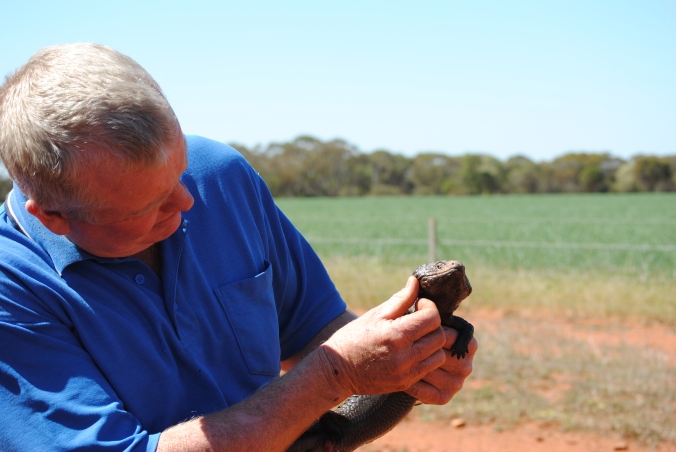Excerpt from Fall 2013 student Anna Moga’s blog “The Land of Aus”. Reproduced with permission.
For the past two weeks, us Americans have had the experience of an Australian Spring break. They were amazing! The first week consisted of going with a group of 9 of us to a camp in the Blue Mountains where we were able to hike down into them and see Australia’s natural beauty. Some of us also rode the steepest railway in the world according to the Guinness book of world records. It was 52 degrees steep!
After that all of the Americans took a trip to the outback. This was by far my most cherished experience yet. In a comfortable bus we took a ten hour drive to the town of Condobolin where we stayed on a sheep shearing farm. While there we ate SO much delicious food and experienced things that to me seemed typically Australian. The cabins we had were filled with spiders, so sleeping in there wasn’t much of an option for me. Though it got chilly at night, some of us slept in sleeping bags under the stars. Seeing all those beautiful stars reminded me of being at home. Some exciting things we did were watch a sheep get sheared, hold a very large shingle-back lizard, drive on the back of a ute (truck) with a large spotlight to find Kangaroos, chased Emus in the ute (we almost ran them over), and chased a tiny wild pig.
The memories I hold dearest to my heart from this trip were the nights spent around the campfire. I had the opportunity to lead some worship, making me excited to do more of that in the future, and each American had the chance to share some of their story. Many of us stayed up late, if not all night, and were able to laugh with one another, pray over each other, and connect with people on a deeper level. I feel so blessed by the people I came here with, and it has been amazing to see God working in each of their lives. It brings me to tears at the thought of leaving them in six short weeks, but the bonds we created are so worth the pain we’ll endure when we’re separated.
One major thing this semester has taught me is the importance of community. God gives us people to share our experiences with and to help one another walk through both the dark and light together. Living life in community creates a whole other level in which it can push your faith to grow. I had a strong realization when I saw how much diving into community could have helped me in the past, and I hoped to apply this lesson upon my arrival home. After the outback a friend from America and an Australian friend invited me on a road trip through New South Wales. God really provided us with places to go during this trip and we were able to see so much more of the state. The towns were quaint and the beaches absolutely breathtaking. And now, we all return to school, to take on a challenging load of work. I pray that this will not hinder my enjoyment of Sydney the last few weeks I am here. Through this Spring break, I have seen how God is always present. He is in everything I see. In all of the gorgeous places He has created, and has brought amazing people into my life for me to love on them as Christ would. I look forward to the last adventures to come before starting a new chapter in my life back home!
